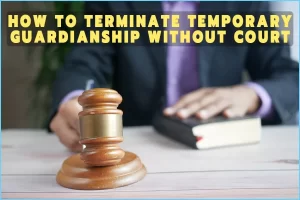What Does Overruled Mean in Court?
Definition of Overruled
In a trial, when a lawyer objects to a question or procedure, the judge can either “sustain” or “overrule” the objection. If the judge overrules the objection, it means the judge is allowing the question or procedure to continue over the objection of the lawyer.
Overruling an objection means the court does not agree with the objection and will permit the question or testimony to stand. So if a lawyer objects to a question during examination, but the judge says “Overruled,” the witness still has to answer the question, and the question and answer will remain on court record.
How Overruling Works in Court
Objections in Court
During a trial, lawyers can raise objections to procedural issues, inadmissible evidence, inappropriate questions, and other matters. Objections are made to the judge, not the opposing lawyer or witness.
Common objections lawyers make include:
- Leading questions
- Hearsay evidence
- Speculation
- Lack of personal knowledge
- Irrelevant questions
- Argumentative questions
When a lawyer objects in court, here’s what happens:
- Lawyer raises objection (“Objection, hearsay!”)
- Judge asks reason for objection
- Lawyer explains reason
- Judge either sustains or overrules objection
Sustaining vs. Overruling Objections
When a lawyer objects during a trial, the judge has two options:
- Sustain the objection – The judge agrees with the objection and does not allow the question or answer.
- Overrule the objection – The judge disagrees and allows the question or answer to stand.
If the objection is sustained, the question will be rephrased or withdrawn and the witness will not answer it. If it’s overruled, the question remains and the witness must answer it.
Reasons a Judge May Overrule an Objection
Judges overrule objections when they disagree with the argument behind them. Some common reasons a judge may overrule an objection include:
Irrelevant Objections
If the lawyer’s objection does not apply to the question or circumstance, the judge will overrule it. For example, objecting to the form of a question when the issue is relevance will get overruled.
Asked and Answered Objections
If the lawyer objects that a question has already been asked and answered, but the judge feels it has not been fully answered, they will overrule the objection and require further response.
Effects of an Overruled Objection
When the judge overrules an objection, it has two main effects:
Answer Stands
First, the witness’s answer to the objected question remains in court records and can be considered as evidence. Even if the answer includes hearsay or speculation, overruling the objection permits it to stand.
Jury Hears Inadmissible Testimony
Second, if it’s a jury trial, the jury will hear the question and answer despite it potentially being inadmissible. This could influence the jury’s perceptions and verdict.
When a Higher Court Overrules
Overruling also happens at appellate courts when a higher court reviews a decision of a lower court.
Appealing to Higher Courts
In an appeal, the higher court reviews alleged errors made by the trial court, including wrongly sustaining or overruling objections. If the higher court finds the trial judge wrongly overruled an objection, it can reverse that decision.
Higher Courts Setting Precedent
Higher courts can also overrule precedent, meaning previous decisions on the interpretation of laws. Their overruling becomes the new binding precedent in that jurisdiction.
The Supreme Court most commonly overrules precedent, changing the way laws are interpreted nationwide.
Examples of Overruled Objections
Hearsay Evidence Allowed
If a lawyer objects to hearsay evidence but the judge overrules it, the hearsay statements will be permitted even though they are technically inadmissible.
For example, during testimony a witness begins recounting what another person told them. The lawyer objects citing hearsay, but the judge overrules, allowing the second-hand statement into evidence.
Badgering the Witness Permitted
A lawyer objects that the cross-examining lawyer is badgering the witness, meaning aggressively questioning in an argumentative manner.
But the judge overrules the objection, indicating that they do not feel the questioning has been unduly aggressive, allowing the intense questioning to continue.
Key Takeaways About Overruled Objections
- An overruled objection in court means the judge disagrees with the objection and allows the question or procedure to stand.
- Judges may overrule objections because the objection does not apply or they feel the question has not been fully answered.
- Overruling an objection means the answer will remain on court record and the jury will hear it, even if inadmissible.
- Higher courts can overrule rulings and precedents from lower courts, changing how laws are interpreted.
FAQ
What happens when a judge overrules an objection?
When overruled, the objected question or evidence will be allowed and the witness must respond. Overruling means the objection is disregarded and the question/procedure continues.
Can a judge overrule their own decision?
Yes, judges can overrule their own past rulings during the course of a trial if they wish to reconsider an earlier decision. They may change their mind after hearing further arguments.
If a judge overrules an objection, can you appeal it?
Yes, overruled objections can be appealed to a higher court. If the higher court finds the judge wrongly overruled an objection, they can reverse the decision.
What does it mean when the Supreme Court overrules a precedent?
When the Supreme Court overrules a precedent, they are changing the binding interpretation of a law nationwide. Their overruling becomes the new rule on how that law must be interpreted.
Can lawyers object to a judge overruling their objection?
Lawyers do not directly object to a judge’s overruling. But they can make arguments why their objection should be reconsidered, or file appeals contesting the overruling after the trial concludes.






